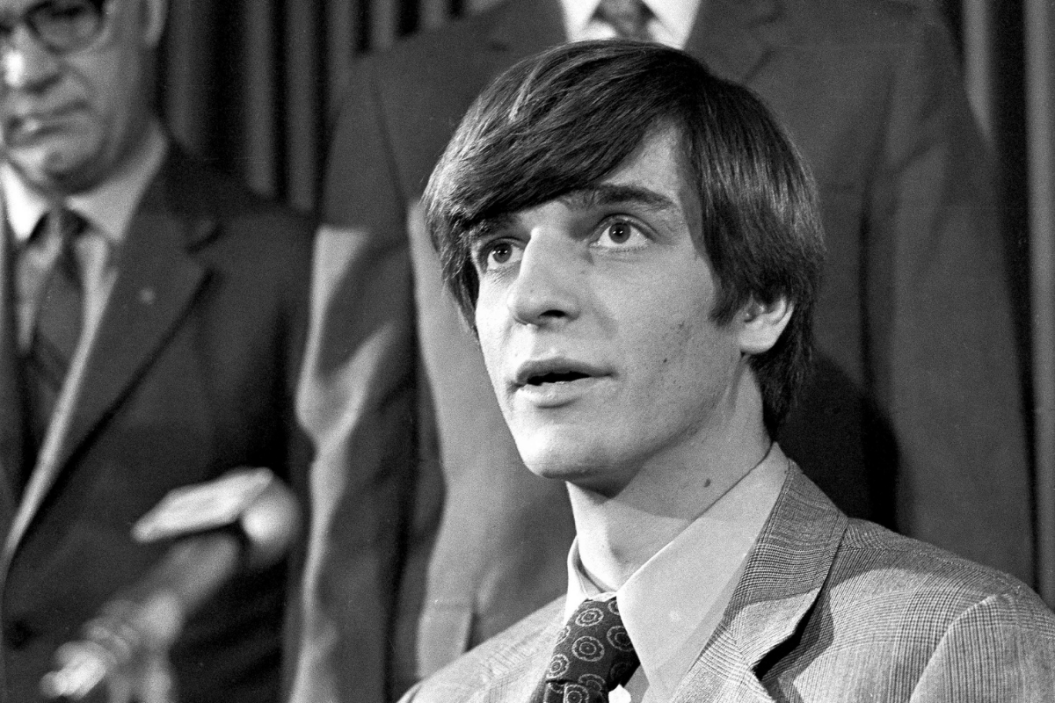It was a seemingly normal pickup basketball game at First Church of the Nazarene in Pasadena, California.
Videos by FanBuzz
Pistol Pete Maravich rolled into the gym. At 40 years old, the Louisiana State University superstar and Hall of Fame basketball player still turned heads. The moppy hair, floppy socks, and baggy shirts bounced in congruence with his dribble. The tangible trademarks of his pizzaz-riddled game.
Pistol was turning a new leaf. Until recently, his life was dedicated to basketball. He now dedicated it to Christianity. He was in Southern California to discuss plans for a biographical movie and appear on religious author James Dobson's radio show.
"I feel great," said Maravich.
His last words stung.
How Did Pete Maravich Die?
He collapsed to the floor. 50 minutes later, he was gone. The five-time NBA All-Star suffered a heart attack on January 5, 1988. The autopsy revealed he had a rare congenital heart defect; he was born without a left coronary artery. To compensate, his right coronary artery was enlarged and overworked.
The news devastated the basketball world. But there was more to the story.
Pistol Pete Predicted His Death 14 Years Earlier
In 1974 Pistol Pete sat for an interview with Andy Nuzzo of the Beaver County Times. During the interview, which Nuzzo was assigned due to the rise in apathy towards Maravich's play with the Atlanta Hawks and Pete's vocal unhappiness with the criticism, the LSU legend had his clairvoyant moment.
"I don't want to play 10 years in the NBA and die of a heart attack at age 40."
Pistol Pete played exactly 10 years in the NBA, from 1970 to 1980, before knee problems ended his career. His untimely death came at age 40. When the news of his passing reached Nuzzo, the reporter was shocked. "That's a little scary, "Nuzzo said to the LA Times. "The story was laying on my desk when I got to work. I read it, and read it and read it. I couldn't believe it. Everything matched."
Pistol Pete's NBA Career
RELATED: Pete Maravich's Collegiate Career Will Never Be Topped
Maravich grew up with a ball in his hands. He was a high school superstar in North Carolina and South Carolina, but it was when he arrived at LSU, that Pistol started gunslinging. Under his father, head coach Press Maravich, Pete had a perpetual green light.
In three seasons on the Tigers' varsity squad, Pistol averaged an absurd 44.2 points per game without the three-point line. He won College Player of the Year twice, SEC Player of the Year three times, and scored 3,667 points over the course of his career. He remains the NCAA Division I all-time leading scorer.
The college basketball record doesn't appear to be threatened anytime soon.
Maravich was drafted third overall in the 1970 NBA Draft by the Atlanta Hawks. He didn't mesh well in Atlanta, much due to his zesty style and lucrative contract, but he made the NBA All-Rookie First Team in 1971. He was traded to the New Orleans Jazz after four seasons.
The showman made his skills dance in the Big Easy, where he attracted crowds of 30,000-plus to the Superdome. He made the All-Star team three teams in NOLA and led the league in scoring, averaging 31.1 points per game in 1977. The franchise moved to Salt Lake City in 1979, where they became the Utah Jazz. Maravich played one season in Utah and finished his career with the Boston Celtics in 1980. Over his 10-year career, Maravich averaged 24.2 points, 4.2 rebounds, and 5.4 assists.
Pistol was inducted into the Naismith Memorial Basketball Hall of Fame in 1987, securing his place in basketball history. Nine years later, the Hall of Famer was posthumously named one of the 50 greatest players in NBA history.
https://twitter.com/Super70sSports/status/1268382254520295425
Maravich's new life chapter was one without NCAA records or the NBA Playoffs but filled with mantling a new identity devoted to religion. UCLA coach John Wooden sang his praises, so did Los Angeles Lakers legend and then-general manager Jerry West. The fateful pickup game was the last we saw of Pistol Pete the basketball player and leaves a blank page on what Pete Maravich the man would've accomplished in his post-playing days.
